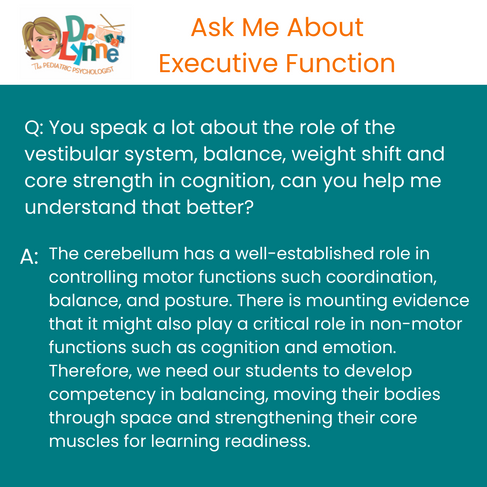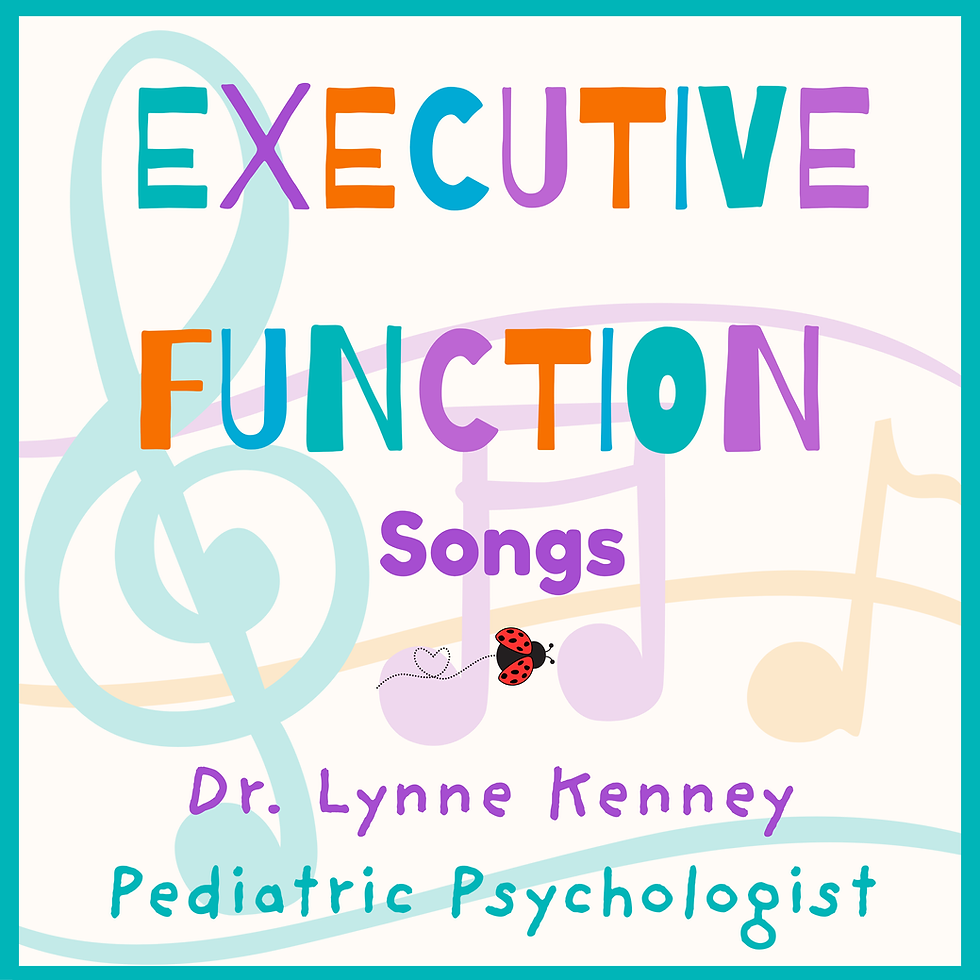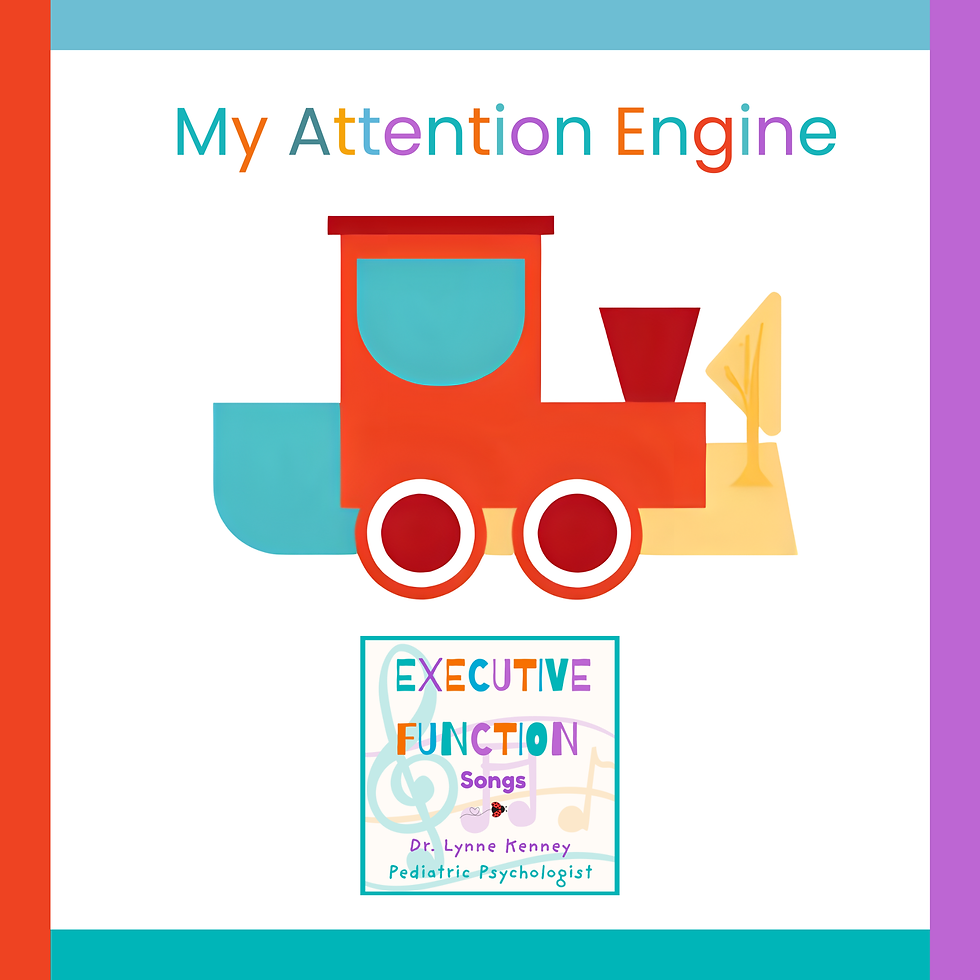What is missing in the conversation about 66% of 4th-grade children not reading at grade level?
- drlynnekenney

- Aug 21, 2022
- 4 min read
Updated: Jan 27, 2023
If you are an Educator the BIG Conversation is...
About school districts shifting their reading interventions to align with an enormous body of literature in the Science of Reading. If you missed the Time article this week, you can read it here, the conversation is now in the public eye. You can read an interesting article on cracking the code here. Here is a classic article by Lyon, 1998 on why reading is difficult for many children, link.
Recently, we have been speaking with superintendents, principals, and state leaders about the fact that while the phonological loop is being stimulated in the brain to help children map their sounds to letters and decode words, there are two other brain-body systems developing alongside language: Executive Function and Sensory-Motor Skills.
The strongest predictor of early reading is phonological skills. Yet, we need to recognize that alongside language, these skills are also developing: Vestibular, sensory-motor, coordination, balance, core strength, attention, memory, self-regulation, response inhibition, patterning, sequencing, and more.
Here are a few examples of how executive function and sensory-motor skills play a role in learning.
Executive function skills facilitate reading comprehension by coordinating specific reading processes, such as integrating information, retrieving information, supporting mental imagery, generating and applying strategies, and simultaneously coordinating reading processes.
Working memory and planning uniquely contribute to reading comprehension.
Reading comprehension is a complex process that requires several higher cognitive skills.
Without attention, children cannot decode sound/word structure or encode meaning.
Without patterning and sequencing, children cannot develop reading fluency or make sense of mathematics.
Without cognitive flexibility, children cannot adapt to changes in rules, expectations, or priorities.
Without motor rhythm and timing, students have difficulty reading with prosody.
The vestibular system plays a central role in head stability, visual tracking, and scanning all needed for reading.
Children require core and shoulder strength to sit or stand to read and write.
Grapho-motor skills are integrally linked to reading achievement.
A Few Relevant Citations:
Al Dahhan, N. Z., Halverson, K., Peek, C. P., Wilmot, D., D'Mello, A., Romeo, R. R., Meegoda, O., Imhof, A., Wade, K., Sridhar, A., Falke, E., Centanni, T. M., Gabrieli, J., & Christodoulou, J. A. (2022). Dissociating executive function and ADHD influences on reading ability in children with dyslexia. Cortex; a journal devoted to the study of the nervous system and behavior, 153, 126–142. https://doi.org/10.1016/j.cortex.2022.03.025
Bock, A. M., Cartwright, K. B., McKnight, P. E., Patterson, A. B., Shriver, A. G., Leaf, B. M., Mohtasham, M. K., Vennergrund, K. C., & Pasnak, R. (2018). Patterning, Reading, and Executive Functions. Frontiers in psychology, 9, 1802. https://doi.org/10.3389/fpsyg.2018.01802
Blank, R., Barnett, A.L., Cairney, J., Green, D., Kirby, A., Polatajko, H., Rosenblum, S., Smits-Engelsman, B., Sugden, D., Wilson, P. and Vinçon, S. (2019). International clinical practice recommendations on the definition, diagnosis, assessment, intervention, and psychosocial aspects of developmental coordination disorder. Dev Med Child Neurol, 61: 242-285. https://pubmed.ncbi.nlm.nih.gov/30671947/
Bonacina, S., Krizman, J., White-Schwoch, T., Nicol, T., & Kraus, N. (2020). Distinct rhythmic abilities align with phonological awareness and rapid naming in school-age children. Cognitive Processing, 21(4), 575–581. LINK
Brimo, K., Dinkler, L., Gillberg, C., Lichtenstein, P., Lundström, S., & Åsberg Johnels, J. (2021). The co-occurrence of neurodevelopmental problems in dyslexia. Dyslexia (Chichester, England), 27(3), 277–293. https://pubmed.ncbi.nlm.nih.gov/33759268/
Caldani, S., Moiroud, L., Miquel, C., Peiffer, V., Florian, A., & Bucci, M. P. (2021). Short Vestibular and Cognitive Training Improves Oral Reading Fluency in Children with Dyslexia. Brain sciences, 11(11), 1440. https://doi.org/10.3390/brainsci11111440
Crispiani, P., Mountstephen, M., Palmieri, E. (2019). Early Markers of Executive Functions and Their Relation to Dyslexia: Cross Patterns and the Level of Initial Activation. Asia Pacific Journal of Developmental Differences. Vol. 6, No 1, pp. 115-126. LINK
Diamond, A., & Ling, D. S. (2016). Conclusions about interventions, programs, and approaches for improving executive functions that appear justified and those that, despite much hype, do not. Developmental cognitive neuroscience, 18, 34-48. https://pubmed.ncbi.nlm.nih.gov/26749076/
Ferreira-Vorkapic, C., Alves, H., Araujo, L., Joaquim Borba-Pinheiro, C., Coelho, R., Fonseca, E., Oliveira, A., & Dantas, E. (2021). Does Physical Activity Improve Cognition and Academic Performance in Children? A Systematic Review of Randomized Controlled Trials. Neuropsychobiology, 1–29. https://pubmed.ncbi.nlm.nih.gov/33887743/
Fiveash, A., Bedoin, N., Gordon, R. L., & Tillmann, B. (2021). Processing rhythm in speech and music: Shared mechanisms and implications for developmental speech and language disorders. Neuropsychology, 35(8), 771–791. https://pubmed.ncbi.nlm.nih.gov/34435803/
Gerst, E. H., Cirino, P. T., Macdonald, K. T., Miciak, J., Yoshida, H., Woods, S. P., & Gibbs, M. C. (2021). The Structure of Processing Speed in Children and its Impact on Reading. Journal of cognition and development : official journal of the Cognitive Development Society, 22(1), 84–107. https://doi.org/10.1080/15248372.2020.1862121
Li, H., Kepinska, O., Caballero, J. N., Zekelman, L., Marks, R. A., Uchikoshi, Y., Kovelman, I., & Hoeft, F. (2021). Decoding the role of the cerebellum in the early stages of reading acquisition. Cortex; a journal devoted to the study of the nervous system and behavior, 141, 262–279. https://doi.org/10.1016/j.cortex.2021.02.033
Nouwens, S., Groen, M.A., Kleemans, T. and Verhoeven, L. (2021). How executive functions contribute to reading comprehension. Br J Educ Psychol, 91: 169-192 e12355. https://doi.org/10.1111/bjep.12355
Nugiel, T., Roe, M. A., Taylor, W. P., Cirino, P. T., Vaughn, S. R., Fletcher, J. M., Juranek, J., & Church, J. A. (2019). Brain activity in struggling readers before intervention relates to future reading gains. Cortex; a journal devoted to the study of the nervous system and behavior, 111, 286–302. https://doi.org/10.1016/j.cortex.2018.11.009
Scionti, N., Cavallero, M., Zogmaister, C., & Marzocchi, G. M. (2020). Is Cognitive Training Effective for Improving Executive Functions in Preschoolers? A Systematic Review and Meta-Analysis. Frontiers in psychology, 10, 2812. https://www.frontiersin.org/articles/10.3389/fpsyg.2019.02812/full
Ten Braak, D., Lenes, R., Purpura, D. J., Schmitt, S. A., & Størksen, I. (2022). Why do early mathematics skills predict later mathematics and reading achievement? The role of executive function. Journal of Experimental Child Psychology, 214, 105306. https://www.sciencedirect.com/science/article/pii/S0022096521002241
Wan, Y., & Zhu, L. (2021). Effects of rhythmic turn-taking coordination on five-year-old
children's prosocial behaviors. Developmental Psychology, 57(11), 1787–1795. https://psycnet.apa.org/record/2022-13974-003
Wang, Samuel S-H, Alexander D Kloth, and Aleksandra Badura. (2014). “The cerebellum, sensitive periods, and autism”. Neuron, 83, 3, 518-32. https://www.ncbi.nlm.nih.gov/pmc/articles/PMC4135479/

























